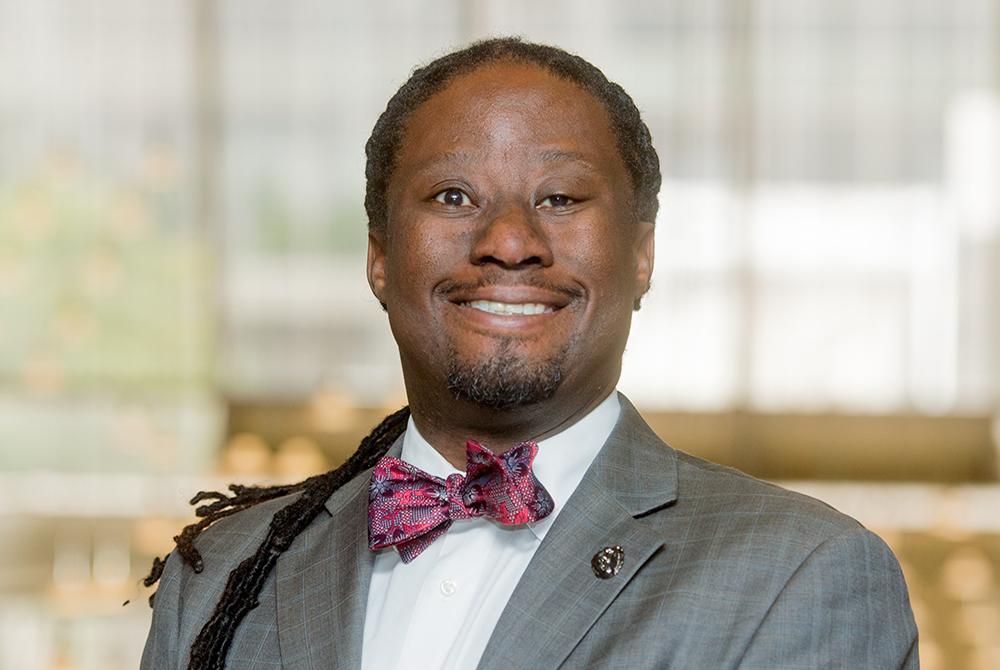Oscar Alleyne, Dr.P.H. ’12
Harnesses Government Power to Improve Local Health Departments

Many roads lead to careers in public health. For Oscar Alleyne, Dr.P.H. ’12, senior advisor for public health programs at the National Association of County and City Health Officials (NACCHO), the path to public health began with a beloved grandmother’s battle against multiple myeloma. “I didn’t understand why someone who didn’t drink or have any negative health indicators would have a short lease on life,” Dr. Alleyne says. “I wanted to identify causes of illnesses like that.”
With his grandmother’s seemingly senseless illness fresh in mind, he turned his sights on epidemiology and environmental health. In this arena, Dr. Alleyne has spent more than two decades fulfilling his passion for helping people by harnessing the power of federal and local governments to protect and restore the health and safety of populations.
Dr. Alleyne spent much of his life in Brooklyn, with early childhood years in Grenada and Barbados. He earned his bachelor’s degree in biological sciences from the State University of New York (SUNY) at Buffalo in 1996, and his master of public health degree from SUNY Albany in 1998.
One year later, he hit the ground running, transforming his research assistant position at the New York State Department of Health’s Center for Environmental Health into a major opportunity: he developed a knowledge-based system software program to help New York State health officials respond to water quality crises.
According to Dr. Alleyne, coordinating local and national resources is the best way to effectively address public health issues. “Public health is a team sport,” says the School of Health Sciences and Practice alum. “Local health departments are ‘ground zero’ for everything that happens in public health. On a day-to-day basis, public health departments have to track and respond to some 70 reported diseases, identifying and working with physicians, hospitals, nurses, and other health providers who are responsible for translating health and safety issues to help local health officials form strategies for protection.”
Indeed, his belief in this necessary local-state-national overlap characterizes the arc of his career, which began at the Rockland County Department of Health, where he created a comprehensive program to prevent the countywide spread of West Nile Virus, while addressing other pressing national health issues, like Anthrax, Smallpox, and Ebola. He tackled the Zika virus too. In collaboration with the Centers for Disease Control, he devised a mechanism to track the national Zika epidemic and develop a response to the resulting high rates of birth defects. He also has served on his local U.S. Department of Health and Human Services’ National Disaster Medical Assistance Team since 2003, participating with a motivated group of professional and para-professional medical personnel who provide rapid response during national medical and environmental disasters.
From his office at NACCHO, which represents the country’s 3,000 local governmental public health departments, Dr. Alleyne has a bird’s eye view of the challenges facing public health, especially the lack of workforce funding in local health departments. “During the Zika epidemic, many infection control programs across the U.S. were cut to the bare bones, and their ability to respond suffered because they did not have the funding for enough skilled personnel.”
Today, Dr. Alleyne brings this critical view to his current post where he supervises a $14 million budget, and manages programs for infectious diseases prevention and control, immunization, HIV, sexually transmitted infection, viral hepatitis, public health preparedness, public health law, pandemic and catastrophic preparedness, and public health informatics. He also secures funding to support technical assistance and demonstration projects at public health departments across country, as well as hurricane response and mosquito control programs in the U.S. Virgin Islands.
Reflecting back on his career, two decades after he was first inspired by his grandmother to affect change in the arena of public health, Dr. Alleyne says, “All of what I do is based on altruism. That for me is what it means to be a public health professional.”
